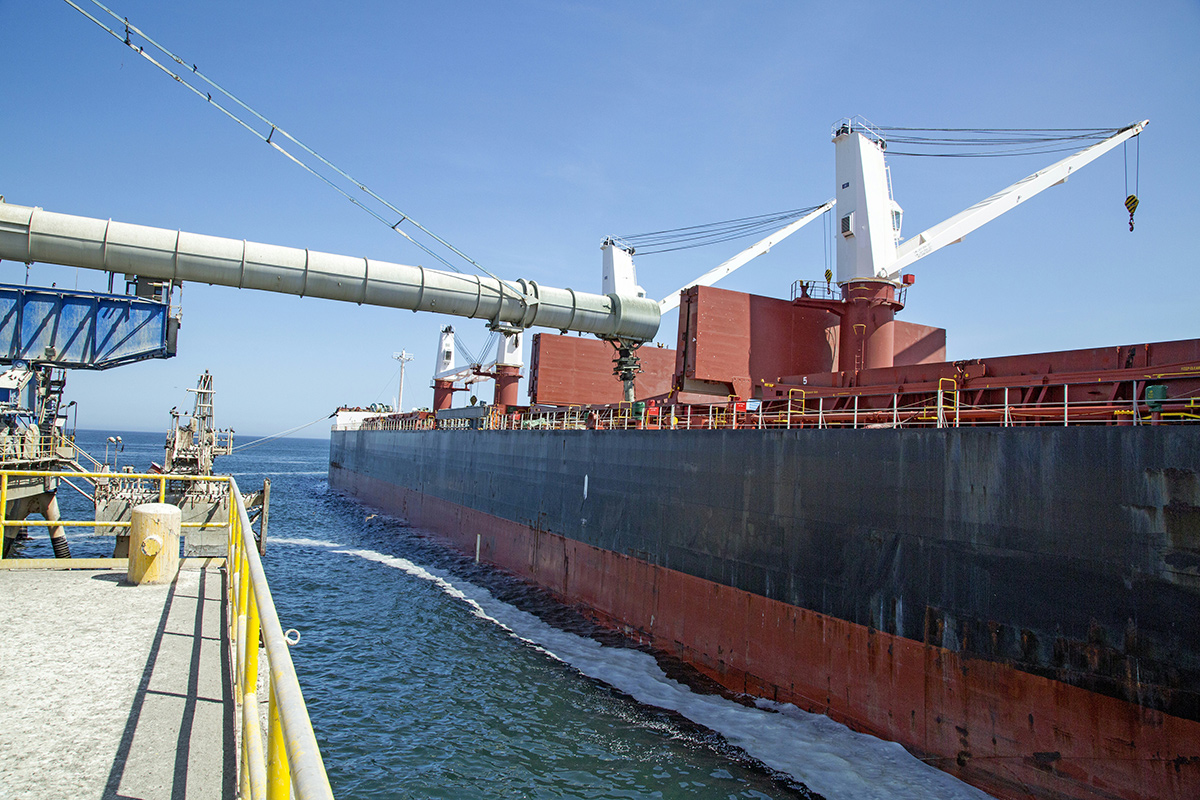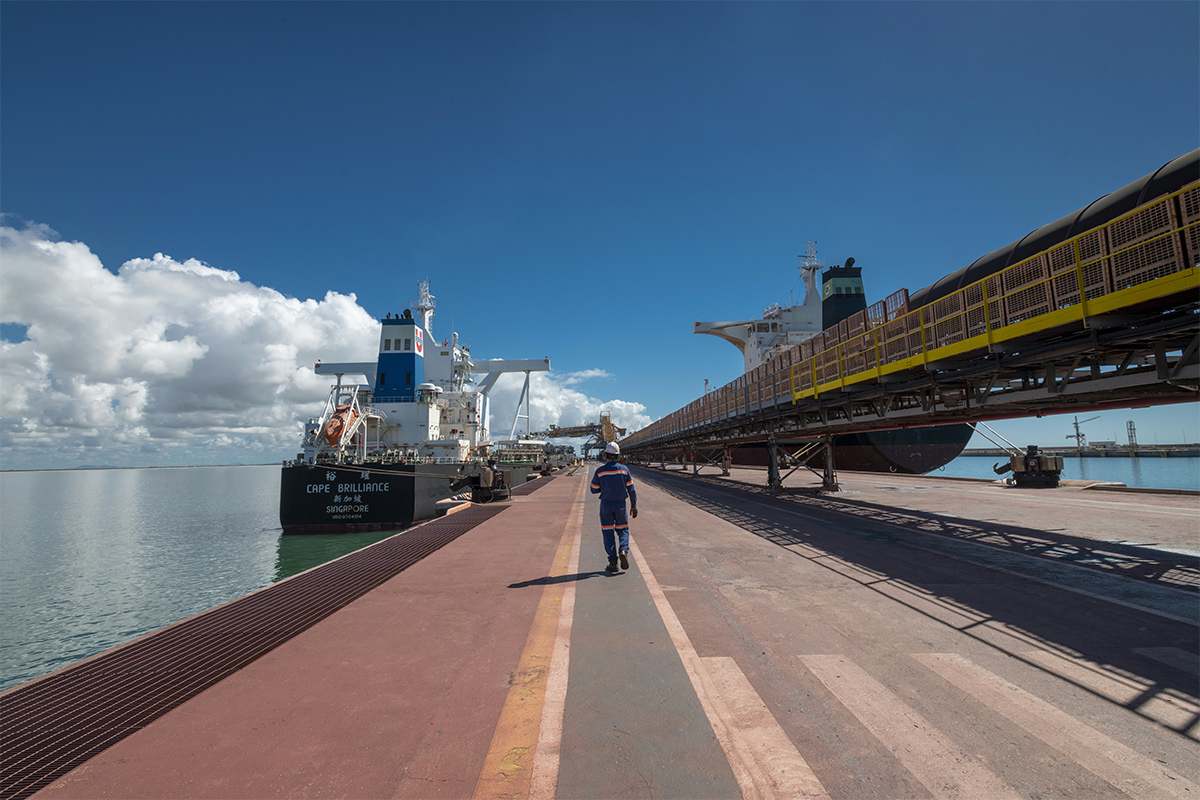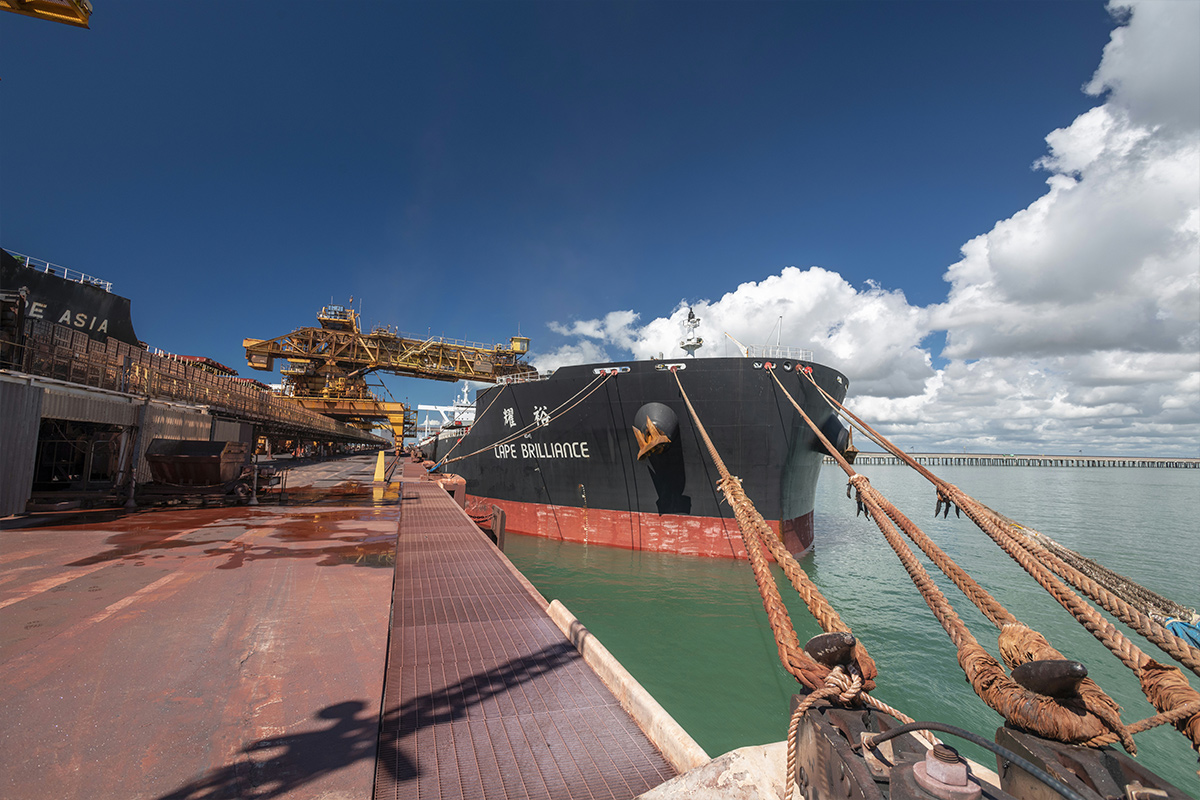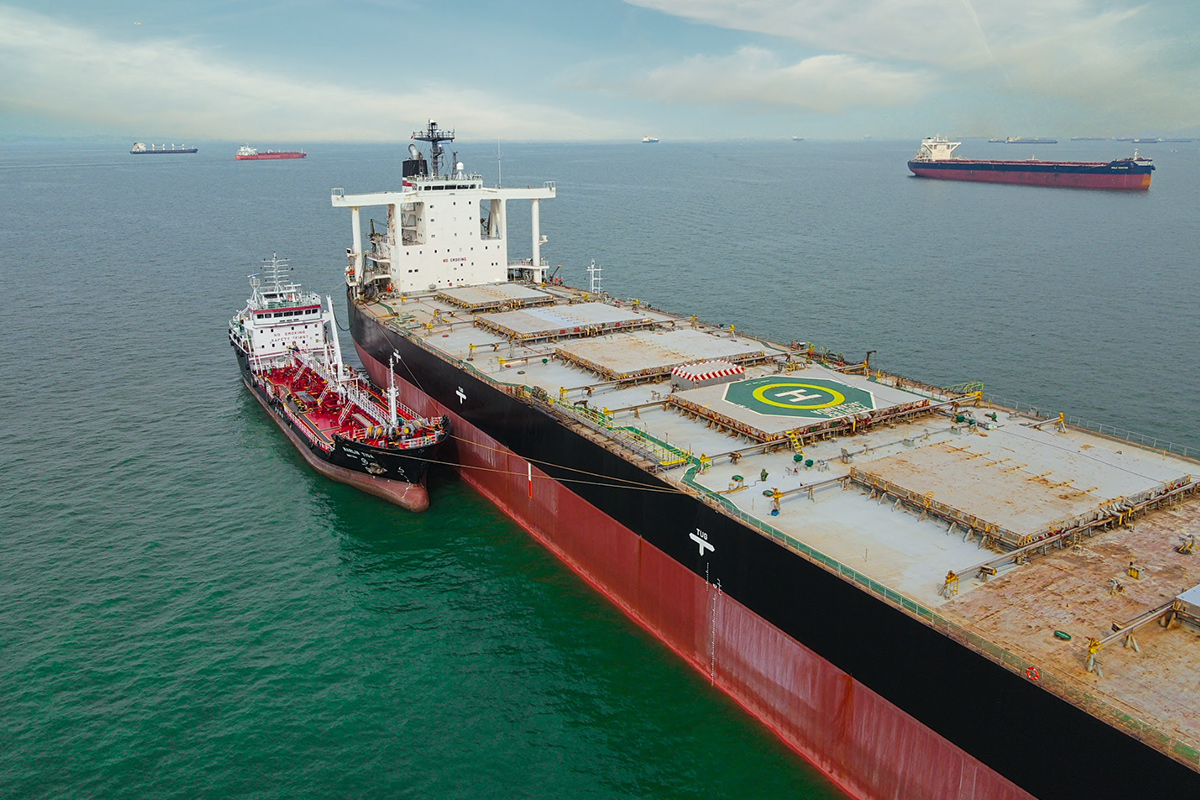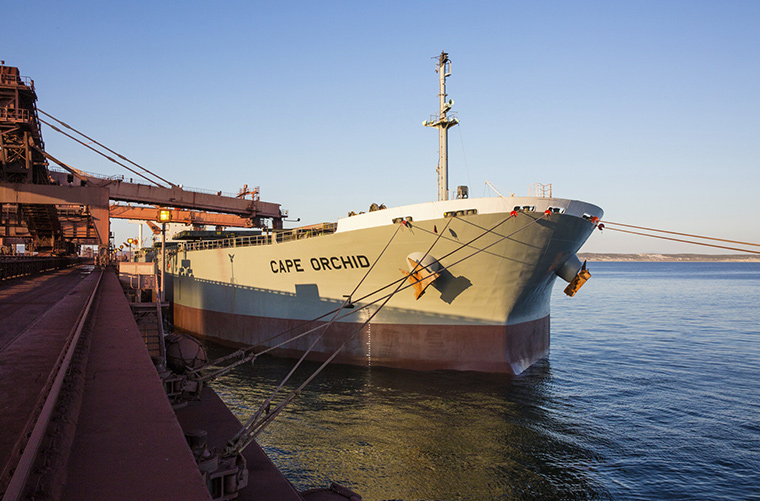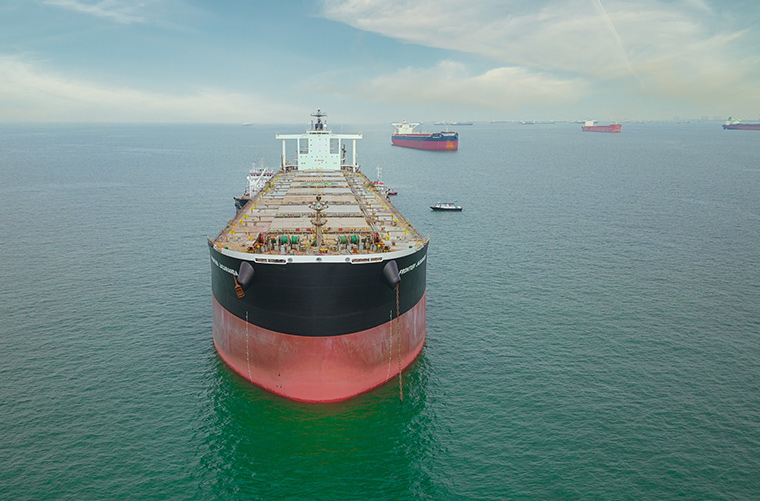“The pessimist complains about the wind; the optimist expects it to change; the realist adjusts the sails.”
– William Arthur Ward
Shipping and ocean freight have been around for centuries and, today, remain one of the most efficient and cost-effective ways to move traded goods and commodities around the world.
Each year, some 10 billion tonnes are transported by sea, around 1.5 tonnes per person or roughly the weight equivalent to five GT500 Mustang Convertibles. This scale makes maritime shipping a major industry; one that plays a critical role in fuelling economic growth.
Despite being more environmentally friendly than other methods, it is largely as a result of this scale that the industry is responsible for around 2.9%1 of the world’s total greenhouse gas emissions, such as carbon dioxide.
Contributing to the long-term sustainability of the sector is a priority – and not just for ship owners. It’s also an imperative for companies like us. Last year we shipped over 130Mt of dry bulk cargo and more than 20,000 containers, of which over 50% was managed through our portfolio of chartered vessels across multiple trade routes.
This puts us in a unique position, with an opportunity to help influence the wider maritime industry – particularly in the areas of safety and sustainability – while seeking to reduce emissions across our entire value chain.
Charting a Course
In its 2018 Initial Strategy, the International Maritime Organization (IMO) made its intentions clear. Namely the goal by 2050 of reducing the total annual volume of greenhouse gases (GHGs) from international shipping by at least 50%, compared to 2008 levels, with an updated strategy expected to be released in 2023.
In June this year, the IMO's Marine Environment Protection Committee (MEPC 76) adopted new measures to help meet these targets, set to come into effect from January 2023. They will require all ships to calculate their Energy Efficiency Existing Ship Index (EEXI) following technical means to improve their energy efficiency and to establish their annual operational carbon intensity3 indicator (CII) and CII rating.
These changes represent a major challenge for the maritime industry; one that operational measures alone will not overcome. Instead, a multi-faceted approach is required, from investment in cutting edge technologies and the use of alternative low-carbon fuels, to regulatory change and research into other zero carbon solutions such as hydrogen and solar power.
Fuelling the Transition
A significant proportion of emissions generated by the maritime industry today come from burning fossil fuels. And while there is no silver bullet to resolve the issue, one solution is the use of alternative low-carbon and zero-carbon fuels – such as green biofuel, green liquefied natural gas (LNG), ammonia and hydrogen.
Although there is a lot of work to do to explore the viability of these solutions, there have been some positive developments in recent years. At Anglo American we are proud of the progress we are making in this space.
Last year, we announced for the first time, the addition of LNG-fuelled capesize+ vessels to our marine operations. The new build LNG vessels offer significant environmental benefits, including a c.35% cut in CO2 emissions compared to standard marine fuel, while also using new technology to eliminate the release of unburnt methane, or so-called “methane slip”. These vessels are currently being built and will be in operation by 2022.
Biofuel is another promising solution, although less mature than LNG. We recently partnered with Japanese shipping company, NYK Line and Singaporean firm, Alpha Biofuels, to trial the use of sustainable biofuel during part of a commercial voyage from Singapore to South Africa.
The biodiesel blend, supplied by Toyota Tsusho Petroleum, was produced by recycling waste cooking oil from Singapore’s food and beverage industry, and was used to power the capesize bulk carrier, MV Frontier Jacaranda. The success of the trial marks an important step forward in establishing biofuel as a viable option, aligned with circular economic principles.
Participating in cross-industry partnerships is also crucial in paving the way to a greener future. One such example is a recently launched joint study framework assessing the use of ammonia as an alternative marine fuel. One of 22 founding signatories involved, the study is intended to provide a better understanding of some of the common issues of ammonia’s use as a zero-emission marine fuel, including fuel specification, net CO2 emissions at production, and safety issues associated with NH3 bunkering.
As founding signatories of the Sea Cargo Charter, a partner of the Global Maritime Forum and a member of its Getting to Zero Coalition, we are also actively engaged in many of the critical conversations aimed at realising the maritime sector’s ‘moon-shot ambition’2 of getting commercially viable deep sea zero emission vessels, powered by zero emission fuels, into operation by 2030.
Looking Through a Wider Lens
Emission reduction is not our only focus. Supporting and reinforcing positive human rights is also important – exemplified in the support given to seafarers impacted by the COVID-19 pandemic.
Over the past year in particular we have organised a series of programmes onboard our chartered fleet – from supplying extra PPE through port agents, where appropriate, to conducting a mental health and wellbeing campaign to identify and support those affected.
We are also part of the taskforce of maritime stakeholders responsible for developing the Neptune Declaration on Seafarer Wellbeing and Crew Change, and have been advocating for seafarers to gain recognition as key workers, with priority access to COVID-19 vaccines, one of a number of actions intended to improve their rights and wellbeing.
While there are undoubtedly headwinds to navigate, with all hands on-deck and by acting now, a common understanding can be gained of the challenges facing the sector, the opportunities that lie ahead, and the solutions that will prove most effective in decarbonising the industry and our own value chain, and in meeting the IMO’s net zero ambition.
1 The Fourth International Maritime Organization (IMO) GHG Study 2020
2 Global Maritime Forum, Getting to Zero Coalition, Ambition Statement
3 Carbon intensity links GHG emissions to the amount of cargo carried over distance travelled
